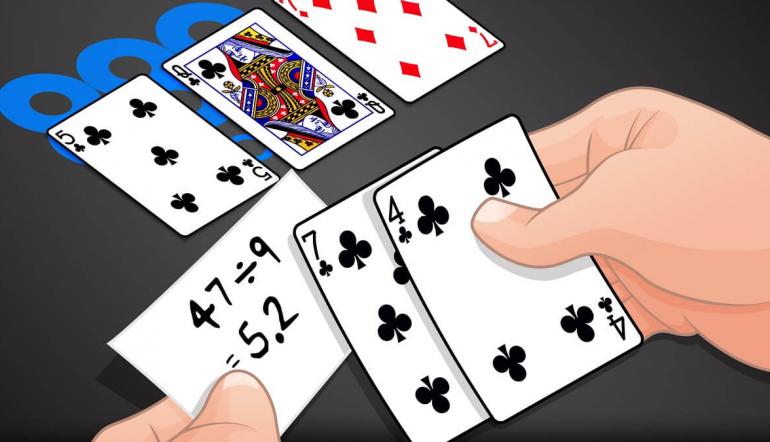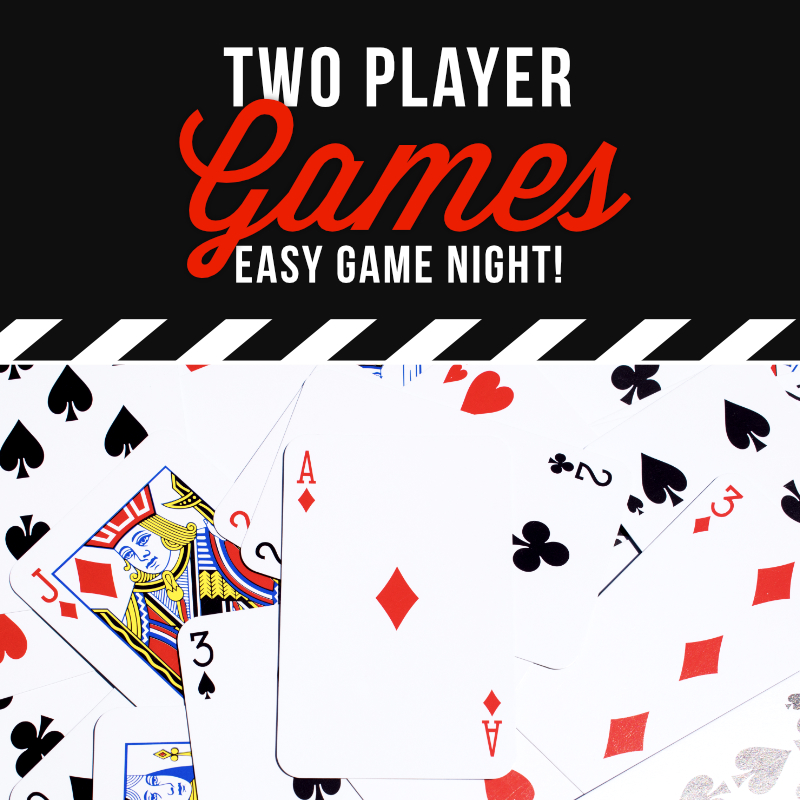By Henry Tamburin
The object of the game is to hope your three-card poker hand beats the dealer's three-card poker hand (the classic 'you against the dealer'). Or, if you do not want to bet against the dealer, you can bet instead that your three-card hand will be at least a pair or higher.
The game is played on a blackjack size table using a single deck of cards. Prior to the cards being dealt by the dealer you must decide whether you want to bet against the dealer's hand or bet that your hand will be at least a pair or higher. You also have the option of betting both ways - against the dealer and against the pay schedule.
If you want to compete against the dealer's hand you must make a bet on the Ante. If instead you want to bet that your three-card hand will be at least a pair or higher, then you would wager on the Pair Plus. The betting spots for making these wagers are located directly in front of each player.
Let's assume that you wager on the Ante. Here's what happens next. The dealer will deal each player and himself three cards face down. You pick up your cards, look at them, and decide whether you want to stay in the game or fold. If you want to stay, you must make another equal wager in the Play betting spot. If you decide instead to fold, you would place your cards face down on the layout toward the dealer. If you fold, the dealer will remove your cards and you lose your Ante bet.
After every player has decided whether to fold or Play, the dealer will face his cards and check whether it contains at least a queen or higher. If it does the dealer's hand is said to 'qualify' and he will then face each player's hand that decided to stay in the game. If your hand has a higher poker rank than the dealer's hand, you win your Ante and Play wagers at even money (if you bet $5, you will win $5). If instead the dealer's hand beats the player's hand, the player's Ante and Play wagers are lost.
What if the dealer's hand doesn't qualify? This occurs if the dealer's hand does not have at least a queen or higher. When this occurs, the dealer will automatically pay each player who stayed in the game (i.e. wagered on the Play) even money on the Ante wager and return the Play wager to the player (it's a push)
Players who make an Ante wager are also eligible for a bonus payout that will be paid regardless of whether the dealer qualifies or whether your hand beats the dealer's hand. The latter point is not trivial. Many players are turned off to Caribbean Stud Poker because if the dealer doesn't qualify they get nothing for having a premium hand. This is not the case with Three Card Poker. If you have a straight, three-of-a-kind or a straight flush you will automatically be paid a bonus according to the following schedule:
Ante Bonus | |
Hand | Payout |
Straight Flush | 5 to 1 |
Three-of-a-Kind | 4 to 1 |
Straight | 1 to 1 |
The optimal strategies, secrets and tips involved in learning how to play and win at 3 card poker are straightforward and easy to understand. Of course there are plenty of other real money games to play - but if you want a casino-based one that gives a low house edge of between 2% and 4%, then three card is a great choice provided you play carefully. Jun 16, 2005 How to Play Poker. Poker is a popular game that's easy to learn but difficult to master. Although it's a card game, poker is also a game of strategy, and you'll need to constantly read the other players to decide when to fold, when to.
If you don't want to compete against the dealer's hand, your other betting option is to wager on the Pair Plus. You win if your three-card hand contains at least a pair or higher. The higher the poker rank, the greater the payout. You lose the Pair Plus bet if you end up with less than a pair. A typical payout schedule for Pair Plus is:
Pair Plus Payouts | |
Hand | Payout |
Straight Flush | 40 to 1 |
Three -of-a-Kind | 30 to 1 |
Straight | 6 to 1 |
Flush | 3 to 1 |
Pair | 1 to 1 |
As mentioned earlier you could wager on both the Ante and Pair Plus from the get go (in fact in some gaming jurisdictions, you must wager on both). If you play both, you can bet different amounts. However, keep in mind this rule. If you decide to fold your hand, you would not only lose your Ante wager but also your Pair Plus wager if you made it as well. That seems like a bummer but in actually it's not because if you had a pair or higher and thus eligible for the Pair Plus payout you should not fold these hands.
The only playing decision involved in Three Card Poker is whether or not to make the Play wager or to fold. A simple basic playing strategy is to just mimic the dealer, that is make the Play wager if your hand contains a queen or higher, otherwise fold.
Stanley Ko in his excellent booklet Mastering the Game of Three Card Poker mathematically computed a more optimum playing strategy. He recommends making the Play wager only if you hold a Queen-6-4 hand or better. Since it's not that difficult to memorize Q-6-4, I'd suggest using Ko's optimized strategy.
The casinos edge for the Pair Plus is 7.27 percent and for the Ante wager it's 3.37 percent based on the initial bet. Note: Some casinos pay 4-1 for the flush on the Pair Plus and the house edge is lowered to 2.32%). Compared to the similar Caribbean Stud Poker and Let it Ride poker games, Three Card Poker is a better gamble.

The Blackjack Insider e-Newsletter (BJI) is the only monthly electronic newsletter dedicated to blackjack. Published since 2001, BJI Members have access to over 500 articles on blackjack – a blackjack library. American Casino Guide Newsletter subscribers can get $80 in FREE gifts by purchasing a one-year BJI Membership for $19.95 (that’s only 16 cents per article). For details on this special offer, go to:www.bjinsider.com/offer. Still not convinced? You can get a FREE 3-month BJI trial subscription by clicking here
In hold'em, players receive two down cards as their personal hand (holecards), after which there is a round of betting. Three board cards are turned simultaneously (called the flop) and another round of betting occurs. The next two board cards are turned one at a time, with a round of betting after each card. The board cards are community cards, and a player can use any five-card combination from among the board and personal cards. A player can even use all of the board cards and no personal cards to form a hand ('play the board'). A dealer button is used. The usual structure is to use two blinds, but it is possible to play the game with one blind, multiple blinds, an ante, or combination of blinds plus an ante.How To Play 2 Card Poker
 Rounds of Betting
Rounds of Betting
- Opening deal- Each player is dealt two cards face down, which are known as hole cards or pocket cards.
- First round of betting- Starting with the player to the left of the big blind, each player can call the big blind, raise, or fold. The big blind has the option to raise an otherwise unraised pot.
- The flop- The dealer burns a card, and then deals three community cards face up. The first three cards are referred to as the flop, while all of the community cards are collectively called the board.
- Second round of betting- Starting with the player to the left of the dealer button, each player can check or bet. Once a bet has been made, each player can raise, call, or fold.
- The turn- The dealer burns another card, and then adds a fourth card face-up to the community cards. This fourth card is known as the turn card, or fourth street.
- Third round of betting- It follows the same format as the second round, but the size of the bets have usually doubled in limit games.
- The river- The dealer burns another card, and then adds a fifth and final card to the community cards. This fifth card is known as the river card, or fifth street.
- Final round of betting- It follows the same format as the second and third rounds.
- The showdown- Using the best five-card combination of their hole cards and the community cards, the remaining players show their hands, with the bettor or last raiser showing first. The highest five-card hand wins the pot. (In case of a tie, the pot is evenly split among the winning hands.)
- These rules deal only with irregularities. SeeButton and Blinduse for rules on that subject.
- If the first or second hole card dealt is exposed, a misdeal results. The dealer retrieves the card, reshuffles, and recuts the cards. If any other holecard is exposed due to a dealer error, the deal continues. The exposed card can not be kept. After completing the hand, the dealer replaces the card with the top card on the deck, and the exposed card is then used for the burncard. If more than one hole card is exposed, this is a misdeal and there must be a redeal.
- If the flop contains too many cards, it must be redealt. (This applies even if it is possible to know which card is the extra one.)
- If the flop needs to be redealt because the cards were prematurely flopped before the betting was complete, or the flop contained too many cards, the board cards are mixed with the remainder of the deck. The burn card remains on the table. After shuffling, the dealer cuts the deck and deals a new flop without burning a card.
See Explanations,discussion #2, for more information on this rule. - If the dealer turns the fourth card on the board before the betting round is complete, the card is taken out of play for that round, even if subsequent players elect to fold. The betting is then completed. The dealer burns and turns what would have been the fifth card in the fourth card's place. After this round of betting, the dealer reshuffles the deck, including the card that was taken out of play, but not including the burn cards or discards. The dealer then cuts the deck and turns the final card without burning a card. If the fifth card is turned up prematurely, the deck is reshuffled and dealt in the same manner.
See Explanations,discussion #2, for more information on this rule. - If the dealer mistakenly deals the first player an extra card (after all players have received their starting hands), the card is returned to the deck and used for the burn card. If the dealer mistakenly deals more than one extra card, it is a misdeal.
- If you are playing the board, you must so declare before you throw your cards away; otherwise you relinquish all claim to the pot.